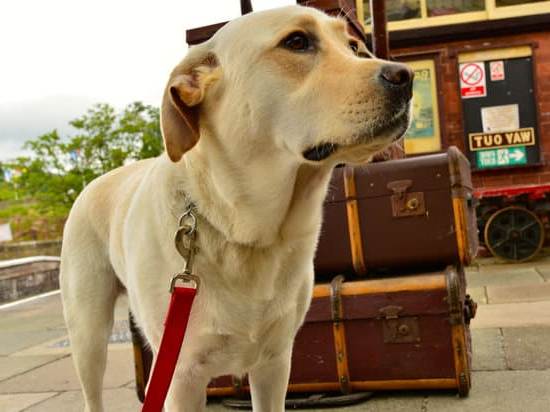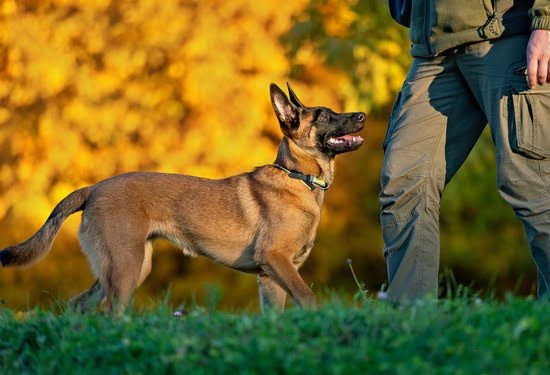For dog owners, training their furry companions is an essential aspect of ensuring a well-behaved and obedient pet. However, not all dogs are motivated by food treats during training sessions. This can pose a challenge for owners looking to effectively train their pets. In this article, we will explore the strategies and techniques on how to train a dog not motivated by food.
Understanding non-food motivated dogs is the first step in successfully training them. Some dogs may have different preferences when it comes to rewards, making traditional food treats ineffective in motivating them. It’s important for pet owners to recognize that these dogs require alternative methods of reinforcement to encourage desired behaviors.
Identifying alternative rewards for training is crucial when working with non-food motivated dogs. Finding what truly motivates your furry friend, whether it’s toys, praise, or playtime, can make a significant difference in their willingness to learn. By exploring different reward options and observing your dog’s reactions, you can tailor your training approach to suit their individual needs and preferences.
Identifying Alternative Rewards for Training
Non-Food Motivated Dogs
Some dogs simply are not motivated by food when it comes to training. This can make traditional training methods challenging, but it doesn’t mean that your pup can’t learn new behaviors. Understanding why your dog is not interested in food rewards is the first step in identifying alternative rewards that will work for them.
Finding Alternative Rewards
When treats just aren’t cutting it for your furry friend, it’s time to get creative with finding alternative rewards. Some non-food motivated dogs respond well to praise and affection as rewards for their good behavior. Others may enjoy playtime with a favorite toy or even a short walk as a reward. Observation of your dog’s preferences and what truly gets them excited is key in finding the right reward system.
Training Techniques for Non-Food Motivated Dogs
To effectively train a dog not motivated by food, you’ll need to focus on alternative rewards and positive reinforcement techniques. Incorporating play into your training sessions can be incredibly effective, using tug toys or games like fetch to reinforce desired behaviors. Consistency and patience are essential when working with non-food motivated dogs, as building a strong bond and understanding their individual preferences will ultimately lead to successful training outcomes.
Building a Strong Bond With Your Dog
Understanding the Importance of a Strong Bond
Building a strong bond with your dog is crucial, especially if your furry friend is not motivated by food during training sessions. A strong bond enhances communication between you and your pet, making it easier to understand each other’s needs and preferences. It also fosters mutual trust and respect, creating a solid foundation for effective training.
Alternative Ways to Strengthen Your Bond
If your dog is not enticed by treats or food rewards, there are other ways to strengthen your bond. Spending quality time together, engaging in interactive play sessions, going for regular walks, and providing ample physical affection can all contribute to building a stronger connection with your canine companion. Remember that every interaction counts towards enhancing your relationship and building trust.
Regular Training Sessions to Enhance Your Bond
Even if your dog is not food-motivated, regular training sessions can still help strengthen the bond between you two. Incorporating fun activities such as agility courses, nose work games, or obedience exercises can make the training process enjoyable for both you and your pet. Consistency is key when working with non-food motivated dogs – stay patient and persistent in your efforts to build a solid bond through training sessions.
By utilizing these strategies and focusing on positive interactions, you can build a strong bond with your dog even if they are not motivated by food rewards during training. Remember that every moment spent together is an opportunity to enhance your relationship and create a deeper connection with your beloved pet.
Utilizing Playtime as a Training Tool
Some dogs simply aren’t motivated by food when it comes to training, which can pose a challenge for pet owners. Understanding why your dog might not respond to treats is crucial in finding alternative ways to train them effectively. In some cases, certain breeds or individual personalities may be less inclined towards food rewards, making it important to explore other options for motivation.
Identifying Alternative Rewards for Training:
If your dog isn’t interested in treats, don’t worry – there are plenty of other rewards you can use to incentivize good behavior and reinforce commands. Toys, playtime, verbal praise, or even a quick game of tug-of-war can serve as effective motivators for non-food motivated dogs. Experiment with different rewards to see what gets your pup excited and eager to learn.
Building a Strong Bond with Your Dog:
Ultimately, establishing a strong bond with your furry companion is key to successful training, regardless of their food motivation level. Spend quality time together, engage in activities that your dog enjoys, and communicate in a positive and encouraging manner. By creating a trusting and loving relationship with your pet, you’ll find that they are more receptive to training efforts, even if food isn’t their primary motivator.
| Alternative Training Rewards | Examples |
|---|---|
| Toys | Rope toys, squeaky toys |
| Playtime | Tug-of-war, fetch |
| Verbal Praise | “Good boy.”, “Well done.” |
Implementing Positive Reinforcement Techniques
When dealing with a dog that is not motivated by food, it is important to explore alternative methods of positive reinforcement. One effective technique to implement is praise and affection.
Dogs thrive on the approval and attention of their owners, so verbal cues such as “good boy/girl” or gentle petting can go a long way in reinforcing desired behaviors. By showering your non-food motivated dog with love and affirmation, you are creating a strong incentive for them to continue obeying commands and engaging in training exercises.
Additionally, incorporating toys as rewards can be highly beneficial for dogs who do not respond well to food treats. Interactive toys, like a ball or a tug toy, can serve as powerful motivators during training sessions.
By offering these exciting playthings as rewards for performing tasks correctly, you are effectively channeling your dog’s energy and enthusiasm into productive learning experiences. This approach not only helps in reinforcing good behavior but also strengthens the bond between you and your canine companion.
Another useful positive reinforcement technique for dogs not motivated by food is using life rewards. Life rewards are everyday privileges such as going for a walk, getting belly rubs, or receiving access to their favorite spot on the couch. By associating these activities with successful training outcomes, your dog will view them as valuable incentives for following commands. This method showcases that training is not just about obtaining treats but also about earning enjoyable experiences through obedience.
| Positive Reinforcement Technique | Description |
|---|---|
| Praise and Affection | Verbal cues like “good boy/girl” along with petting can motivate non-food motivated dogs. |
| Using Toys as Rewards | Interactive toys like balls or tug toys can be used to reward desired behaviors during training. |
| Life Rewards | Incorporating everyday privileges such as walks or cuddles as incentives for obedience in training. |
By understanding what drives your non-food motivated dog and tailoring your approach accordingly, you can successfully train them using positive reinforcement techniques. Remember that patience and consistency are key when working with any type of dog during training sessions. Stay attuned to your pet’s preferences and needs, and adjust your methods accordingly to ensure effective communication and a harmonious relationship between you both.
Incorporating Clicker Training for Non-Food Motivated Dogs
When it comes to training a dog that is not motivated by food, incorporating clicker training can be a game-changer. Clicker training is a popular method that uses a small device that makes a clicking sound to mark the correct behavior, followed by a reward. This technique can be particularly effective for non-food motivated dogs because the click itself serves as a clear signal of success, which can be just as reinforcing as food to some dogs.
To successfully incorporate clicker training for your non-food motivated dog, consider the following tips:
- Introduce your dog to the clicker gradually, associating the sound with rewards such as playtime or verbal praise.
- Start with simple commands or behaviors that your dog already knows and use the clicker to mark those behaviors before offering a reward.
- Be consistent with your timing when using the clicker – click at the exact moment your dog performs the desired behavior to ensure clear communication.
Clicker training can help build a strong communication channel between you and your non-food motivated dog, making training sessions more engaging and enjoyable for both of you. Remember to keep training sessions short and positive to maintain your dog’s interest and motivation throughout the process. With patience and consistency, you can utilize clicker training as an effective tool in shaping desired behaviors in your beloved pet.
Overcoming Training Challenges With Patience and Consistency
Training a dog who is not motivated by food can present unique challenges, but with patience and consistency, it is possible to achieve successful results. Here are some tips on how to overcome these training challenges:
- Be patient: It’s important to understand that non-food motivated dogs may take longer to learn new commands or behaviors compared to food-motivated dogs. Avoid getting frustrated and be patient throughout the training process.
- Consistency is key: Consistency in your training approach is crucial when working with a dog who isn’t motivated by food. Make sure to use the same cues, rewards, and techniques consistently to help your dog understand what is expected of them.
- Use alternative rewards: Since food might not be a strong motivator for your dog, consider using other forms of rewards such as toys, praise, or playtime. Experiment with different types of rewards to see what resonates most with your furry friend.
It’s also essential to remember that every dog is unique, so what works for one dog may not work for another. Pay attention to your dog’s behavior and preferences to tailor your training approach accordingly. By staying patient, being consistent, and finding the right rewards, you can effectively train a dog who isn’t motivated by food.
Seeking Professional Help for Advanced Training Needs
In conclusion, training a dog that is not motivated by food can be a challenging but rewarding experience. Understanding your dog’s preferences and finding alternative rewards is crucial in successfully training them. Identifying what drives your dog, whether it’s play, toys, or praise, can make a significant difference in their training progress.
Building a strong bond with your dog is also essential for effective training. Spending quality time together, engaging in playtime, and establishing trust will create a positive environment for learning. Using positive reinforcement techniques and clicker training can further enhance the training process for non-food motivated dogs.
Remember that overcoming training challenges with patience and consistency is key. Every dog learns at their own pace, so it’s important not to get discouraged if progress is slow. Seeking professional help for advanced training needs can provide additional guidance and support to address any specific issues you may encounter. With dedication, understanding, and the right tools, you can successfully train a dog not motivated by food and strengthen your bond with your furry companion.
Frequently Asked Questions
How Do I Stop My Dog From Being Food Motivated?
To stop your dog from being food motivated, it’s important to ensure they are getting enough mental and physical exercise. Engage them in interactive play, puzzle toys, and training sessions to stimulate their mind. Additionally, create a consistent feeding schedule to prevent them from becoming overly focused on food.
How Do You Train a Dog That Isn’t Interested in Food?
Training a dog that isn’t interested in food can be challenging but not impossible. Try using high-value treats like cheese or cooked chicken instead of regular kibble. You can also try training before meal times when they might be more eager for food. Consistency and patience are key in this situation.
How Do You Recall a Dog That Is Not Food Motivated?
If you need to recall a dog that is not food motivated, you can try using other motivators such as toys, praise, or attention. Find out what truly excites your dog and use that as a reward for coming back to you when called. Training with positive reinforcement will help build a strong recall even without relying on treats.

Welcome to the blog! I am a professional dog trainer and have been working with dogs for many years. In this blog, I will be discussing various topics related to dog training, including tips, tricks, and advice. I hope you find this information helpful and informative. Thanks for reading!





